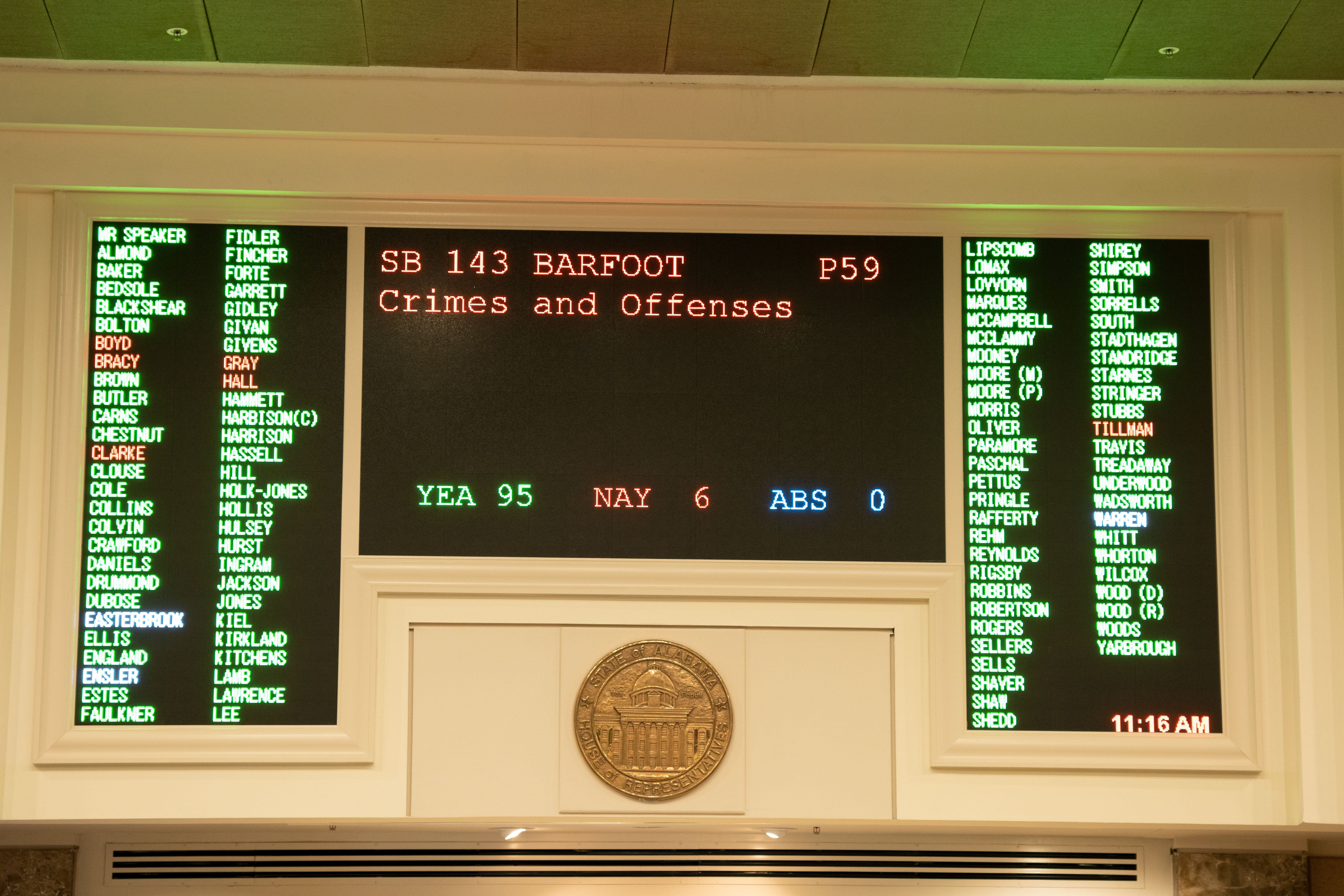MONTGOMERY — The bill adding enhanced penalties for offenders involved in "criminal enterprises" passed the Alabama Legislature on Thursday.
Senate Bill 143 (SB143) by State Sen. Will Barfoot (R-Pike Road) provides penalty enhancements for felonies committed to further the interests of any criminal enterprise, attaches a mandatory minimum sentence to the possession or use of a firearm during the commission of certain crimes, and certifies individuals aged 16 and older as adults when charged under the act.
The bill initially used the word “gang.” However, Senate Democrats removed the term and replaced it with “criminal enterprise.”
The legislation defines a criminal enterprise as "any combination, confederation, alliance, network, conspiracy, understanding, or other similar arrangement in law or in fact, including a street gang of three or more persons, through its membership or through the agency of any member, that engages in a course or pattern of criminal activity."
An individual can be labeled as a criminal enterprise member if they meet three or more of the following requirements at the time of the planning or commission of the underlying offense.
· Admits to criminal enterprise membership.
· Is voluntarily identified as a criminal enterprise member by a parent, guardian, informant or physical evidence.
· Has a tattoo identified as used by a criminal enterprise.
· Associates with one or more known criminal enterprise members.
· Has authored any communication indicating responsibility for the commission of any crime by a criminal enterprise.
· Has been observed in the company of one or more known criminal enterprise members four or more times.
House Democrats used debate time to complain that the legislature had not enacted more gun control measures during the session. They also intimated that a person would be convicted of gang-related activity merely for having a tattoo, wearing certain clothes or displaying specific hand signals.
State Rep. Allen Treadaway (R-Morris), who brought the bill in the House, repeatedly emphasized that the bill only allowed for penalty enhancements when someone was convicted of a felony in the furtherance of a criminal enterprise.
State Rep. Jeremy Gray (D-Opeleika) proposed a technical amendment to the bill, clarifying the definition of a “firearms silencer.”
After carrying the bill over so Treadaway could clarify misunderstandings with certain House members, it passed with a vote of 95-6 with one abstention.
Alabama Attorney General Steve Marshall, whose office worked with law enforcement to craft the bill, attended the House proceedings to observe its passage.
“Very pleased that we’re a step close to dealing with organized criminal activity in our state,” Marshall said. “I think you’ve now seen both from the House and the Senate, almost unanimous support for the effort that we’ve engaged in.”
He continued, “The purpose of the bill is not to attack groups, but to attack groups that engage in criminal activity. And I think that is where we saw some of the confusion. We have to be able to define who the criminal enterprise is and the bill gives that opportunity.”
The Senate concurred with the amendment the same day, and the legislation will now go to Gov. Kay Ivey’s desk for her signature.
To connect with the author of this story or to comment, email craig.monger@1819news.com.
Don't miss out! Subscribe to our newsletter and get our top stories every weekday morning.










